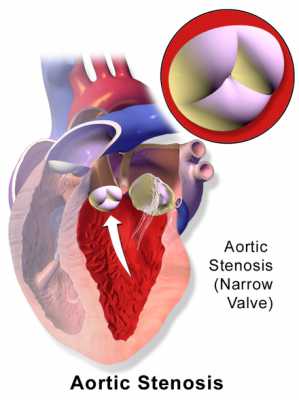15 Nov LPA Gene Variant May Help Identify Increased Risk of Aortic Stenosis
MedicalResearch.com Interview with:
Hao Yu Chen, MSc
Department of Medicine
McGill University
Montreal, Quebec, Canada
Senior author: George Thanassoulis, MD, MSc
MedicalResearch.com: What is the background for this study?
Response: Aortic stenosis, a narrowing of the main valve of the heart, is the most common type of valve disease in the US. Present in more than 2.5 million individuals in North America, aortic stenosis can lead to heart failure and death. However, there is little known about the causes of aortic stenosis and how it should be treated.
Previously, we have demonstrated that variants of the gene LPA are associated with the development of aortic stenosis. A better understanding of how this region contributes to aortic stenosis could identify higher-risk individuals and inform the development of new medical therapies for aortic stenosis.
MedicalResearch.com: What are the main findings?
Response: We examined two variants in the LPA gene, which we and others have previously shown to associate with lipoprotein(a), an unusual form of cholesterol, and aortic stenosis. We found that individuals with more than 1 copy of these high risk variants were twice as likely to develop aortic stenosis as individuals without these variants. We also showed that the influence of one of these variants on aortic stenosis declined with age, meaning that the LPA variants matter more in younger individuals, as opposed to older individuals.
MedicalResearch.com: What should clinicians and patients take away from your report?
Response: Genetic variation at the LPA gene could help identify individuals who are more likely to develop aortic stenosis. Evidence of valve calcification or stenosis at an early age should also trigger Lp(a) measurement, as this could have implications for general cardiovascular prevention. Although there is no specific treatment for high Lp(a) at the current time, new therapies are in development. We also know that optimizing lifestyle and ensuring that all other cardiovascular risk factors are well controlled can mitigate the risk from Lp(a)
MedicalResearch.com: What recommendations do you have for future research as a result of this study?
Response: Researchers examining aortic stenosis should consider the age of the individuals they are studying and perhaps examine younger individuals separately from older individuals, since the causes of aortic stenosis may be different in these two groups. Future studies combining datasets from collaborators around the world are also ongoing, and we hope to uncover additional genetic variants that cause this disease.
MedicalResearch.com: Thank you for your contribution to the MedicalResearch.com community.
Citation: Chen HY, Dufresne L, Burr H, Ambikkumar A, Yasui N, Luk K, Ranatunga DK, Whitmer RA, Lathrop M, Engert JC, Thanassoulis G. Association of LPA Variants With Aortic StenosisA Large-Scale Study Using Diagnostic and Procedural Codes From Electronic Health Records. JAMA Cardiol. Published online November 12, 2017. doi:10.1001/jamacardio.2017.4266
Note: Content is Not intended as medical advice. Please consult your health care provider regarding your specific medical condition and questions.
[wysija_form id=”1″]
Last Updated on November 15, 2017 by Marie Benz MD FAAD

